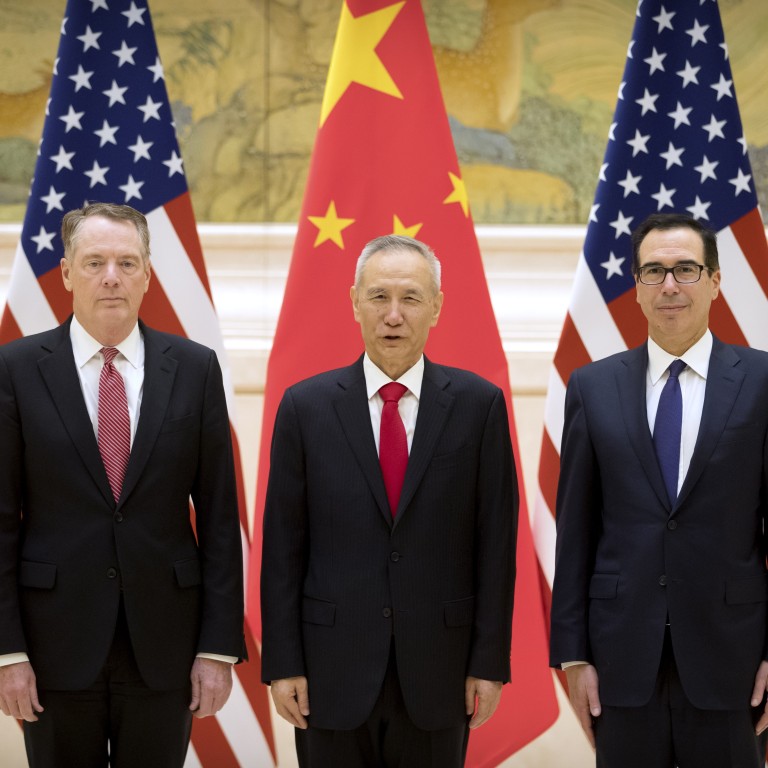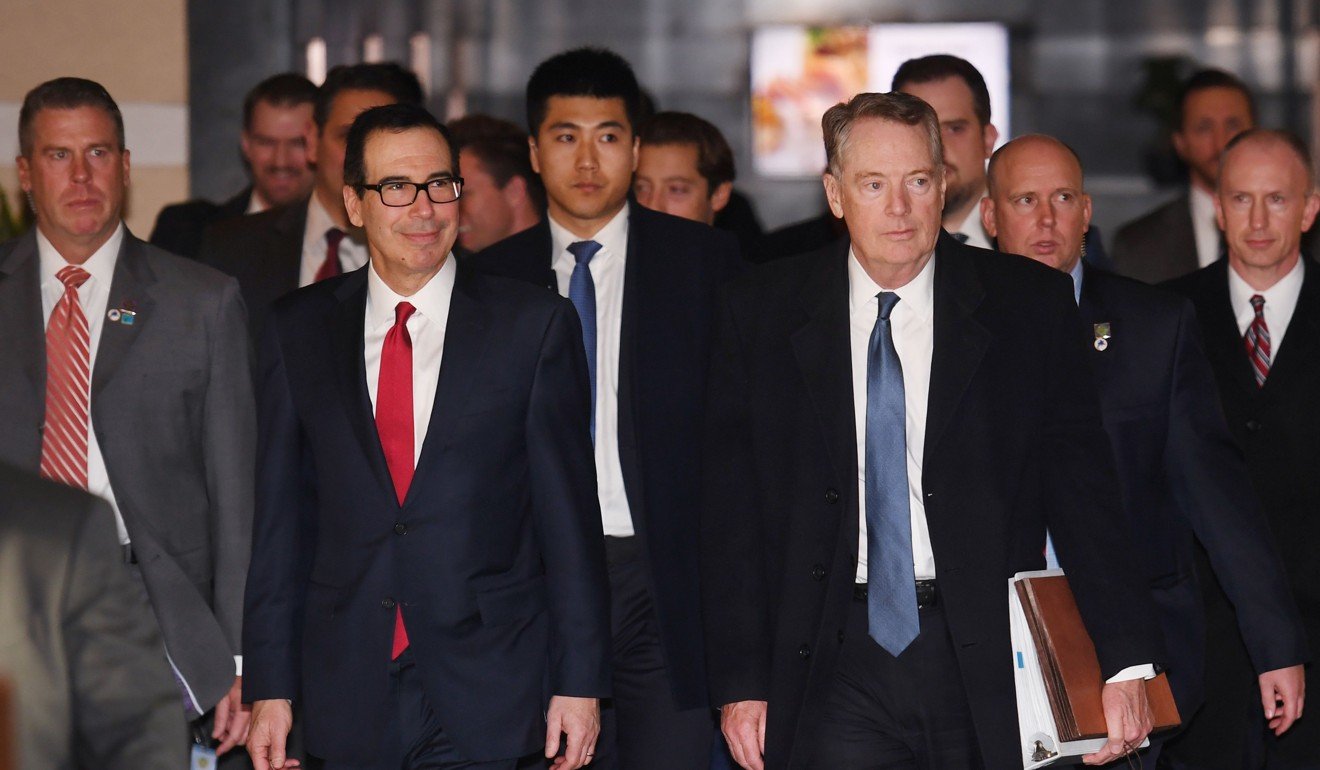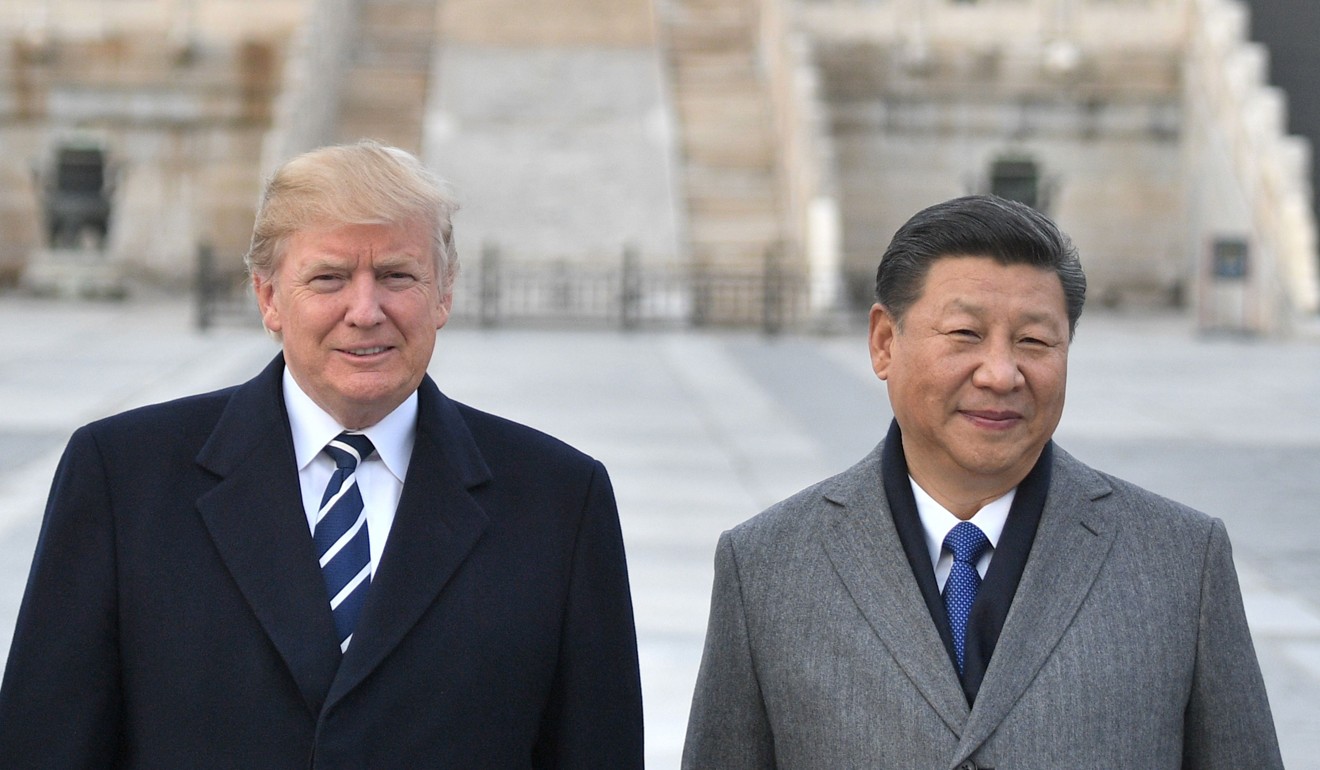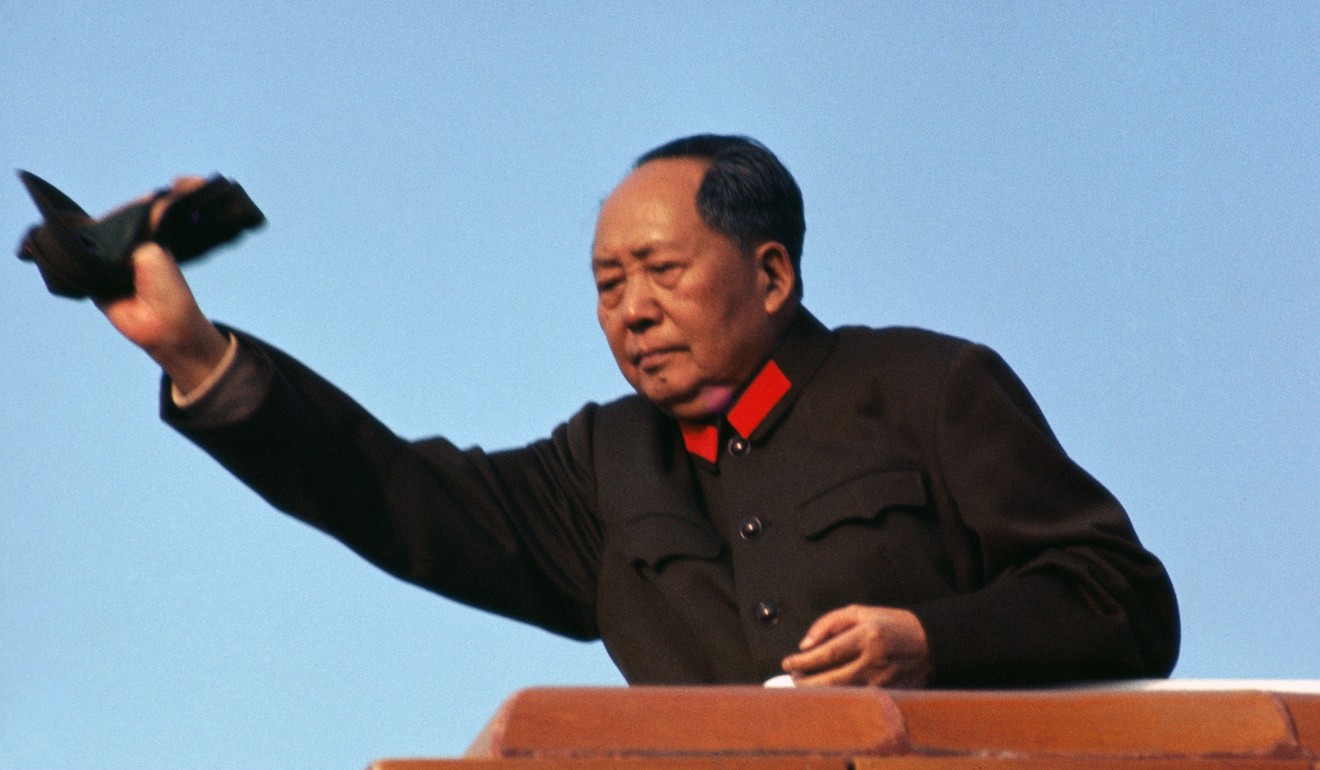
With or without trade war deal, disputes between China and US set to intensify, says Beijing commentator
- Beijing-based independent political economy commentator Zhang Lin shares his thoughts as the March 1 trade war truce deadline nears
- Quote former Communist Party Chairman Mao Zedong saying ‘the imperialists have never ceased their efforts to destroy us’ to suggest Chinese sentiment on US demands
It is wrong to advocate confrontation, but it is not right to pretend there is peace either.
In the current economic climate, China and the United States may reach a trade deal to avoid an escalation in the current tariff war, but such an agreement will not lead to harmonious coexistence between Beijing and Washington.
Demands from Washington can be generalised into two main themes. One is asking China to open up its market further, and the other is asking China to reform its state-led economic model through “structural changes”.
Beijing can compromise on the first demand, but not the second.
As part of China’s reform and opening up initiative, the state had generally retreated from the market and economy in the period from 1978 to 2008, But since then, the state has made a comeback and altered the direction of China’s economic underpinnings.

China’s political and economic elites observed the global financial crisis in 2008 and concluded that China’s model of government intervention and state-owned economy system might be superior to the Washington-led western model of free enterprise. In other words, Beijing’s confidence in the so-called China model reached its peak.
So when the US raised the issue of structural reform in the current trade talks – essentially asking China to give up the state’s grip on capital, business and technology – Beijing found it very hard to swallow.
One communist official raised a very interesting question in her blog: if the US thinks state industrial policies can help improve technology progress, why is the US not able to learn from China and do the same? If the US believes China’s model will lead to disaster and eventually lead to its collapse like the Soviet Union, why is the US unwilling to just let it happen?
This idea is popular among Beijing policymakers and academics. In other words, Beijing finds nothing wrong with its own development model. On the contrary, Beijing views the US as the one losing confidence in itself and the one that is trying to pick a fight with China.
Still, many liberal Chinese scholars and private entrepreneurs have argued for “structural reforms” for years, with many appeals similar to Washington’s demand to reduce the role of the state in the market.
This is why US President Donald Trump, to his surprise, may find a group of supporters among liberals in China – they hope the external pressure from Washington can press China to conduct long-overdue economic liberalisation.

Nevertheless, it is politically unacceptable for Beijing to undo its own economic model.
As a result, Beijing will make certain gestures or promises on structural reforms as temporary concessions to buy time until the day when China is powerful enough to confront the US.
In addition, the two sides have very different understandings about technology transfer, which is the key issue
In the minds of US officials, US firms are in weak position to negotiate with local governments because China did not open its market to allow US firms to enjoy national treatment. The US believes China is engaged in a systematic strategy to obtain foreign technologies through coercion.
China, however, sees it a non-issue, as foreign firms are willingly bringing technologies to China to boost their profits.
The Chinese government also believes that it has already done enough to give foreign investors access to its home market. After all, China has kept certain sectors, such as financial services, off limits to even its own citizens.

And Beijing will never admit having engaged in cyber theft of commercial or technological property, no matter the evidence, and will continue to insist that such accusations are an attempt by the US to isolate China. The result will continue to be assertions by Beijing that US has the same intention and ability.
On the other side of the coin, the US views China as a competitor instead of an ally. It would be politically incorrect for Trump, or any US president, to show weakness towards China.
When US delegates are knocking at the door asking to make this change and that change, the sentiment among Chinese officials is not that “we should change because we are wrong” but, to quote former Communist Party Chairman Mao Zedong, “the imperialists have never ceased their efforts to destroy us.”
Therefore, any trade deal will not be the end of hostilities between the two powers, but rather will be the end of the beginning of a prolonged rivalry.
Zhang Lin is a Beijing-based independent political economy commentator.

